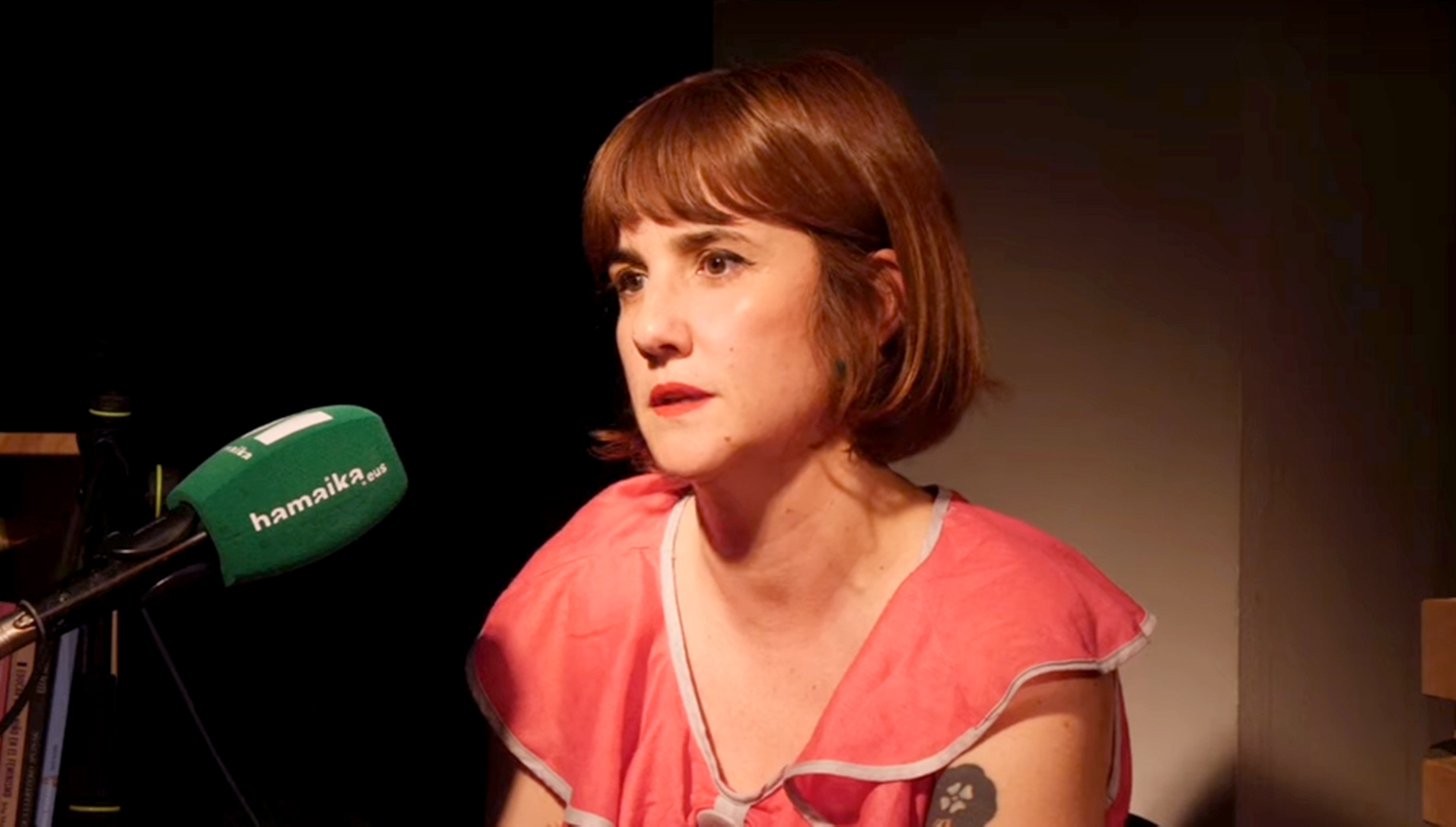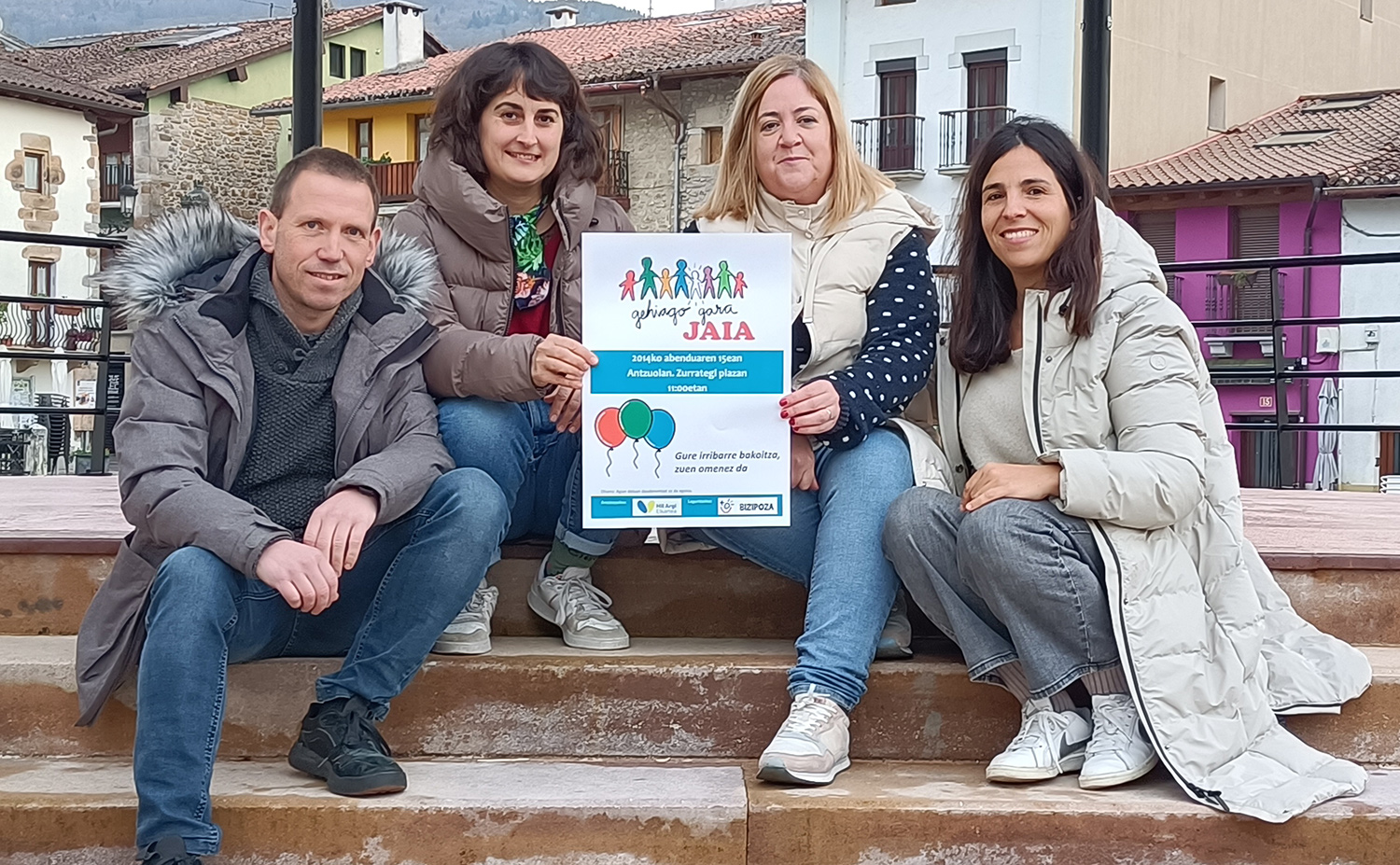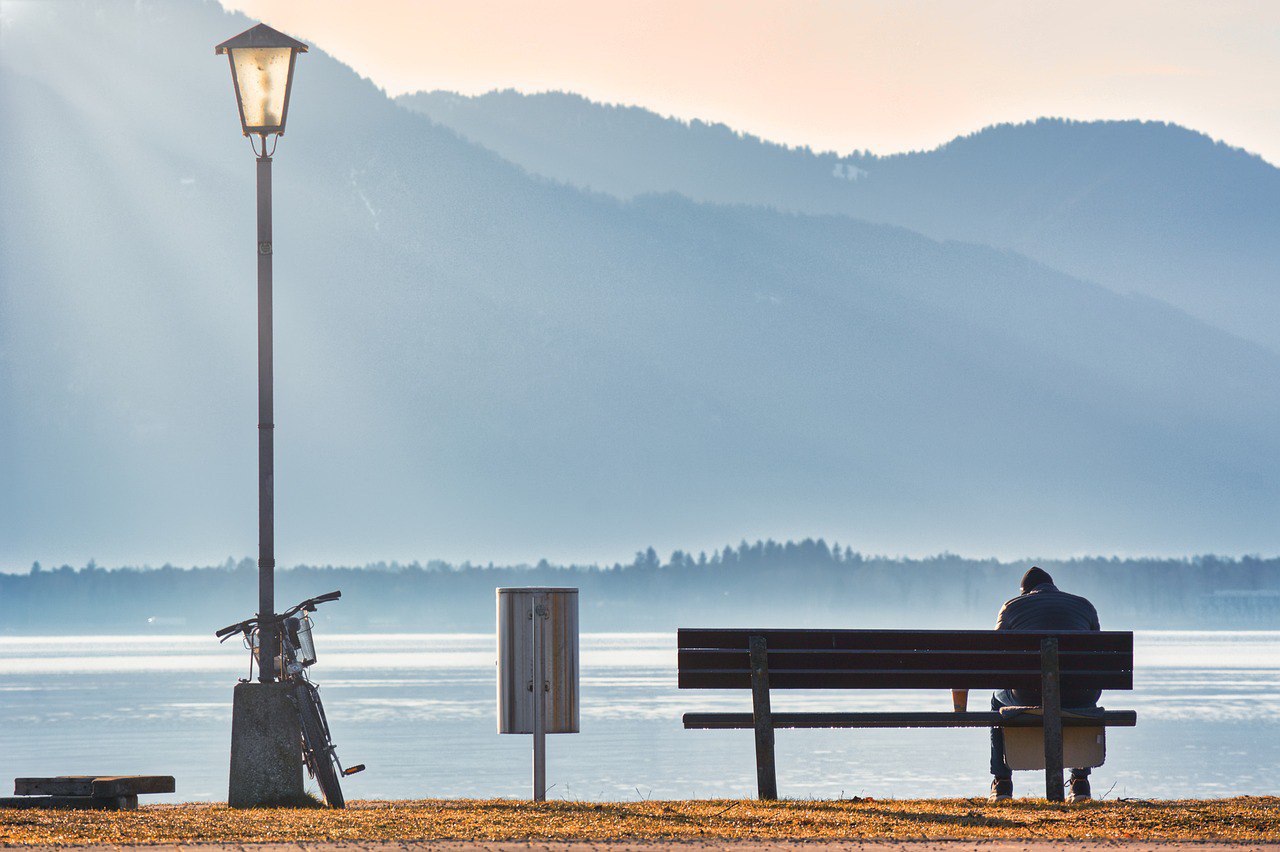"You don't have to cover the pain, you have to live to advance"
- On September 9, Nare, son of Irati Unamunzaga and Jon Arriaga, died a few days after his birth. Since the same pregnancy, they have shared with others the sweet roads, naturally, and have decided to take another step with the process of perinatal mourning: to tell it publicly in an interview. To put this taboo subject on the table and to let you know that when no one comes up with something like this, it is not the only one.

Irati Unamunzaga Aranda. Durango, 1990
He studied education and is a professor of profession. A childhood lover, she has always been clear that she wanted to experience motherhood and has struggled in recent years to achieve it. Right now, the mother who is in grief and learns to live with the wound of loss.
Jon Arriaga Olabarria. Markina-Xemein, 1986
Studying the world of communication and audiovisual, the camera jumped from the background to research and in recent years is dedicated to cultural management. In addition, it is the engine of several cultural projects based on Euskera and philosophy PSC Yourself. Today, a parent who recreates the priorities of life and hurts.
A few months ago they got in touch with me, because they wanted to tell you what you've lived. How did they make that decision? Jon Arriaga: We arrived at this point with quite
a surprise and everything happened very quickly. Then you don't know where the wind is going. We spent a month and a peak and we thought it would be okay to tell, if people are in a similar situation, to see that they're not the only ones.
Irati Unamunzaga: To see that it is a reality and that it is not something out of life, but death. It is true that we had already told in the area that we were in treatment; then, when I had ectopic pregnancy, we started to become more aware of these kinds of things, which we had to do naturally. And there we saw that more people are passed on, even if they don't count. A.O. : The pregnancy story is very prenatal… E.U. : Pink. Everything seems ideal, and not. It can be
a nice experience, but things also happen along the way.
He was admitted to the last stage of pregnancy at the Cruces Hospital with preeclampsia. How do you remember it? E.U. : At the time we entered the emergency room I was very anxious, because I saw that the tension was very high. But I thought they would give me
a pill to go down and go home. And 24 hours after maturing, I was told that I had to stay there until my daughter was born… I was about six months old. A.O. : At first we didn't take anything in. We arrived
a couple of days and went to a room, where we slowly began to react.
"You [Jon] lived and died about you, but in my case, for example, and once commenting with friends, I have only had my daughter dead"
IRATI UNAMUNZAGA
How long were you? E.U.
24 days.
It was a dangerous disease for both the pregnant woman and the child. A.O. : They told us that at a certain point a red light would turn on in
Irati or in Nare, and they would decide to leave. They told us that another day was a lot for these young children, and then gradually we created a routine. E.U. : Get up, assemble, walk, family visits and friends…
J.A. We were there, to see when that red light would turn on.
.jpg)
It was Monday, September 4. A.O. A little bit surprised us. Around 12:00 we were told Irati that she had gone down a lot of defenses and that she could not wait any longer. E.U. : In a quarter of an
hour we received the room from our house and went to the delivery room. They put me on medication
so I don't have affection in my head, neither I nor Nar, and there had to be a few hours with that medication. Then I was taken to the operating room and after the C-section Nare was born at five and a half.
What did the next few days look like? E.U. : When I went to the resuscitation unit I was quiet. When Nare was born, she cried, breathed
on her own, I was told everything was OK, I was OK, and I was in the “calm” after the storm lived in recent weeks. A.O. : And I started with a marathon: accelerate Irati, in the
area of the Nare neonates and I in an inn. I spent those days from one place to another. Then on Wednesday they went down to the floor to a room, left with you again and it was the first time you saw Nare. E.U. : Until then they didn't let
me get out of bed.
"At the time we did receive the support of others, but we all had a lot of perinatal mourning, we too"
JON ARRIAGA
On Friday, things started to get complicated. A.O. : Nare had a CT scan and they saw a stroke in his head and he didn’t respond well to the antibiotic… I.U.
: They thought I had an infection, that I could have been a meningitis… Then I thought, “Well, it doesn’t come out,” but I didn’t really believe. But then I told Jon the day, "The picture is wrong." A.O. : We thought the consequences would be very serious and the child would have
a very poor quality of life.
E.U. : And it was the only thing we wanted, we said from the beginning, that the child had a good quality of life and autonomy. That was clear to us. A.O. :
On
Saturday they did other TACs and told us that, although they did not have all the results, they were able to anticipate that Nare would not have a good quality of life, for sure. And so we decided: we don't want to extend.
They called a photographer. E.U. : We had fears about pregnancy, because it was expensive and also had to leave in our environment some pregnancies in the fifth month, so we had hardly any photos, memories, and we said it's time, we have to have something of yours. A.O. : We thought, what panorama, now we are
called here, to see if you
are encouraged to take some pictures when Nare is about to die… In the end we met Lehior Elorriaga through a friend. E.U. : The moment Lehiberri came, with the hug he gave us what he told us… He was what had to be. He naturally addressed the issue of death and made us feel that we were in
a safe place, even when he was. A.O. : I don't know if we would have found someone like this intentionally. The hospital also gave us a nice area, at that time they took care of us. E.U. : Although it was the hardest time in life, I was quiet. A.O. : Empty. E.U. : When we came down, it was a feeling: it is, we have done everything we have been able to do. We've been there.
A.O. : We have been there, we have lived it, and we have it naturally, because we have lived it naturally, but I understand that it hears from the outside and may think that “these are the ones who have”.
E.U.
: How can such
a hard thing be told?
A.O. : It's a very wild time, but at the same time we have very good memories. E.U. : It's the time when my daughter first picked up. You [Jon] took it alive and died about you, but in my case, for example, and once commenting with friends, I have only had my daughter dead
on top and it is very hard, but for me that was a sweet moment. I have a good memory. It's hard, but I haven't had the opportunity to reach my daughter any other way. A.O. : When we come down from there we get quiet as empty and we sleep.
E.U. Next to the pill, but asleep. Then I've been weeks by the pill, but slept. That gave me security. The daily protections provided by this and those in my home.
.jpg)
On 23 September
he was greeted on the beach of Ogella. A.O. : There were a lot of people and we've had that recognition: people know we've had a child, we've been parents and it's called Nare. But at the same time they haven't met and missing a person you haven't met is not that easy, because it hasn't been in your day to day. At the time we did receive the protection of others, but we all had a lot of perinatal grief, us too. E.U. : How to help in those moments, how to be, how to give presence… We don’t know, we haven’t been educated for that, or at least I haven’t had an education around death, around any dolo, let alone in those cases. So how do we act on this? I think we do not have strategies here. However, we have much to thank those who have been by your side. A.O. : In the end, death is not
something that can happen to some. We are born and it will pass to all of us. E.U.
: And it is linked to life, I mean, that life is not on the one hand, and that death is another thing that is lost from there, it is so.
"I've thanked people for saying, "What do you need?" Or 'Irati, I'm going to do this, you come?' Pull me when I couldn't"
IRATI UNAMUNZAGA
In these cases, we sometimes fail to know what has helped you.
E.U. I've thanked people for saying, "What do you need?" Or, "Irati, I'm going to do this, you come?" Flush me when I couldn't. A.O. : You know that if you ask for help people will help you, but sometimes you don't have the strength or the desire to ask. So sometimes you
need on the other side that aquifer work: don't coerce, but propose. So what about the tribe is really important, in the end we share joys and share bad things to bring them better. We don't know what to talk about in these situations, well, we're just like that and we're ready.
How have you cared for psychological health? E.U. : When the picture deteriorated, we were clear that we were going to therapy. Just in case you don't have any knots there. We went home, and after two weeks, when we were more settled, we started looking. We gave importance to language, to
be in Basque, especially because it is the language of both, and then we wanted perinatal grief to be someone who lived in the first person. A.O. : Sometimes it makes me graceful that they say: what do you want a good doctor or a Basque? Well, I want him to be a good therapist and Euskaldun, both because I need that transfer to be in Euskera to be OK, or to find that feeling or that closeness. In this sense, we had good care in the hospital and were very well attended, but it is true that we did not have any psychological help at any time. Outside, we go to therapy on
our own, we pay and we pay well, but not everyone has that opportunity and they will have the same need.
E.U. : When after all we met with Nare's pediatrician to collect the report, they told us if we had something to say, to improve, and we said that we didn't have psychologists at any point in the process, and I think we'll have to pass some other, at first, when we got the news, and then we also saw ourselves in some connection with Nare's death. There you see the gap in Osakidetza with mental health. Empathy was received from the doctors, for example, they gave me permission to go home, although they actually advised me to stay a couple of days, and that's fine, but there was
no other specific professional to guide the situation. A.O. :
Osakidetza is said to be doing well, but we all know that the means are missing. And for example, in this particular case that we've lived, when there are children so young in the newborn, they use the kangaroo method, which means that parents have to be as long as possible with the child, you have free access 24 hours in seven days. Well, but if you don’t have a place to be, and to be I don’t say the possibility of leaving the tuper in a refrigerator, I say that you have to be in a bar, you pay 4,000 euros… So, if this method is very interesting, I don’t say it, it is very interesting for the hospital, because you just have to turn its management around. There will be these shortcomings in all branches, but we have had them in particular.
"If unfortunately something like this happens to you, because it tries to socialize, it shares a little that burden with the tribe"
JON ARRIAGA
Do you mean something else? A.O. : I don't know very well how to explain this idea, but sometimes it's what I say, to pass that all of you, that gives me more pain than has not happened. E.U. : We had thought about what our future would be like, what we would like to do…. A.O. : You've put forces in one direction and you're suddenly drifting. And it is very traumatic, yes: Nare has been born, we have not enjoyed it, he has died… But if you see him by himself, because he looks at
a
person is alive,
something has happened to him, and he has died without suffering much, because that is not bad in himself, the truth is that Nare has died five days and we have not had the opportunity to enjoy, to get angry or… I often have all the pain. E.U. Or pass them all and don't pass.
A.O. : In New Year’s Eve I told Irati a moment, 2023 is over and we will throw him on fire. And Irati said to me, “but I have become pregnant in 2023,” well then we will fire September, but also September, because Nare was born in September, then September 9, but also not, because for the first time we took our baby in our hands and for the last time. Nor is it black or white. E.U. We said, "2023 what a bad year," because a month after Nare's death he died, what a black year, but I don't have that perception, for me it has been a very hard and very hard end, but there have also
been
positive things. However, you have to live the pain and not bend it, it is something you have to live to advance. A.O. : In the end, everyone will try to do the best they can, as they can, not be punished voluntarily. So if unfortunately
something like this happens to you, because it tries to socialize, it shares
a little bit of that burden with the tribe. E.U. : Talking to us at least benefits us. A.O. : That's
been our story.
.jpg)
Soco Lizarraga mediku eta Nafarroako Duintasunez Hiltzeko Eskubidea elkarteko kidearen ustez bizi testamentuak heriotza duin bat eskaini eta familiari gauzak errazten dizkio.
Gertakariak igande egunsentian suertatu dira 5:00ak aldera Gasteizeko Mitika diskotekan. Hildako pertsona 31 urteko gizon bat da, eta lurraren kontra buruarekin hartutako kolpe baten ondorioz hil da, antza atezainak kolpe bat eman ostean.
These were my last words when we left, held hand in your deep breathing sleep. Your heart stayed forever without a special, simple, dignified pain. As you want and demand. How we want and respect.
Already a month before the arrival of winter, the last days of the longest night,... [+]
First of all, we wish to extend our condolences to the family and friends of the woman killed in early August.
The people of Gaintxurizketa are fed up with the disillusionment of the administration and those responsible.
Those of us who live in the neighborhood are forced to... [+]
Paris 1845. The Labortan economist and politician Frédéric Bastiat (1801-1850) wrote the satire Pétition des fabricants de chandelles (The Request of the Sailing). Fiercely opposed to protectionism, he ironistically stated that the sailing boats asked for protection against... [+]









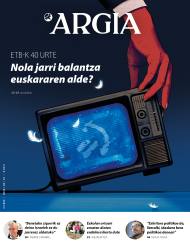


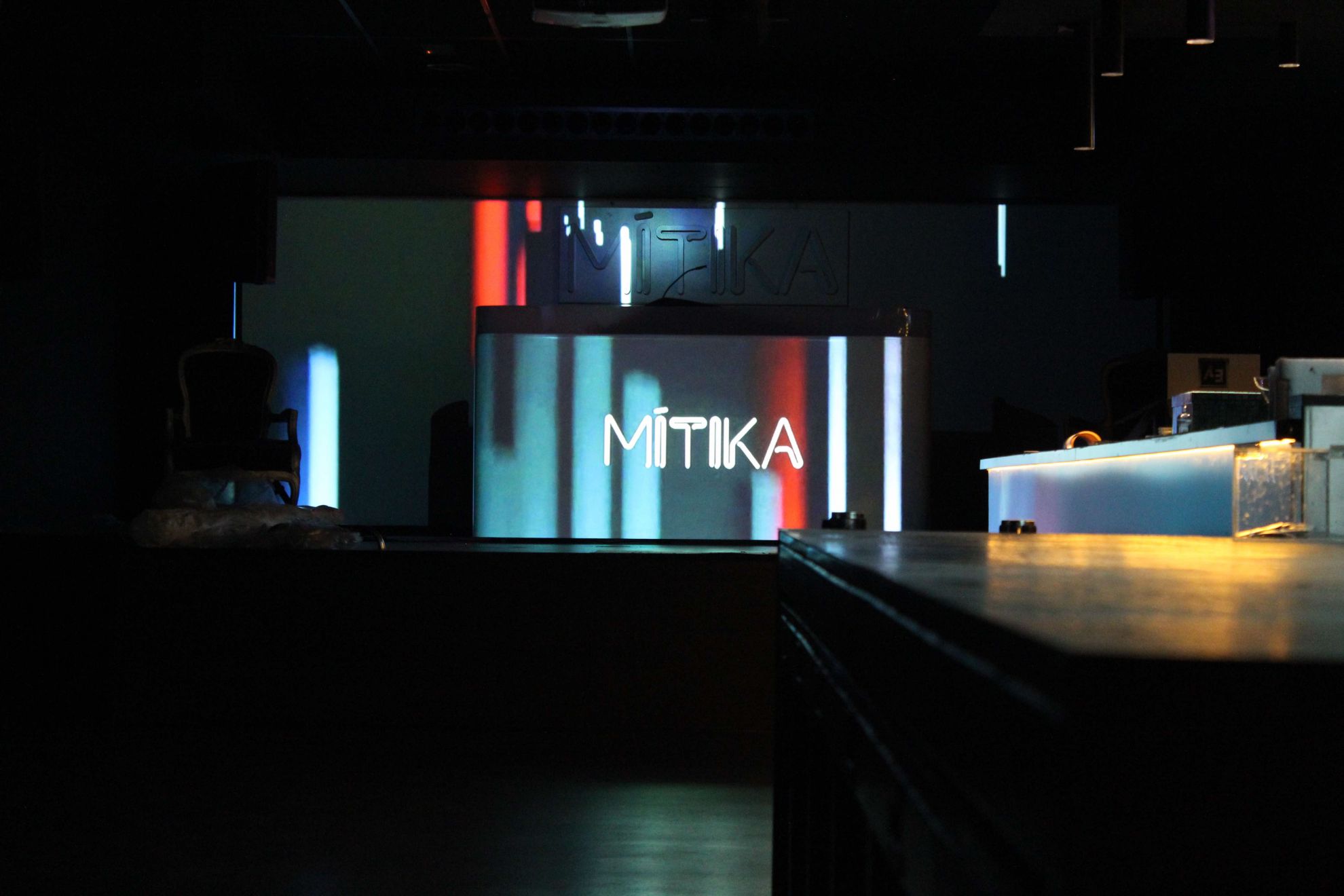
.jpg)
